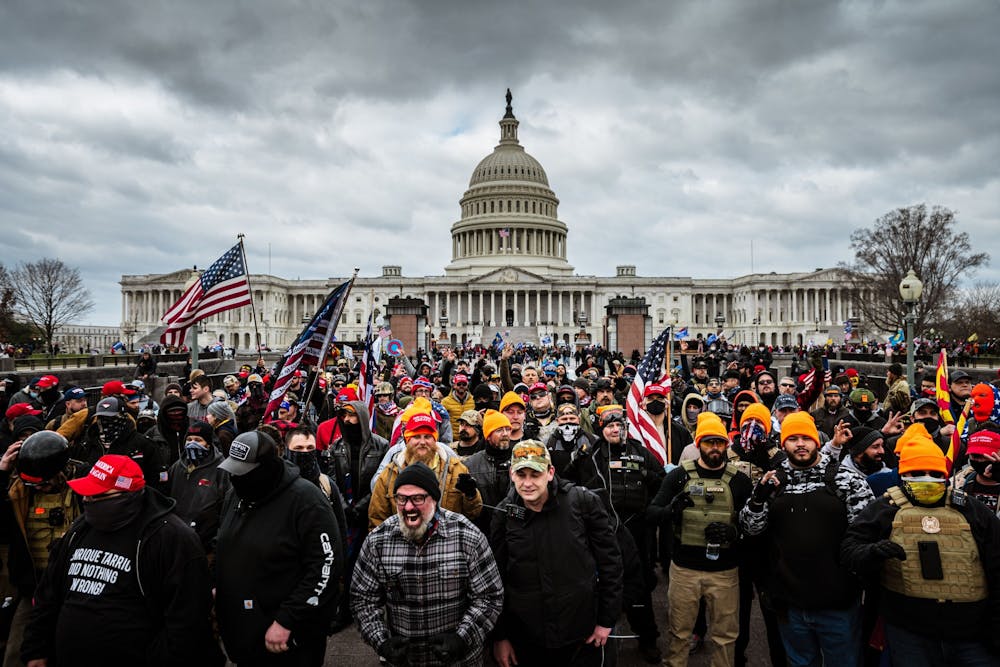IU presented a discussion panel Friday afternoon to discuss the breach of Capitol Hill. Four political science, law and history experts spoke about impeachment and the 25th Amendment, factors causing the insurrection and future political implications.
Congress met to certify President-elect Joe Biden’s Electoral College victory Wednesday before the process was interrupted. Congressmembers evacuated when the Capitol building was breached by pro-Trump rioters.
Elizabeth Bennion, IU-South Bend political science professor, said she thinks the Democractic leadership in the House has prioritized filing articles of impeachment rather than invoking the 25th Amendment..
“I think there is a sense that they want to go on record saying that this behavior is unacceptable and to let voters know that they did everything they could,” Bennion said.
Ray Haberski, history professor and director of American Studies at IU-Purdue University Indianapolis, said the impeachment of former President Richard Nixon is an example of how bipartisan support of articles of impeachment in the House led to Nixon being advised to resign rather than facing conviction in the Senate. He said if there was an impeachment of President Trump, it would probably fail in the Senate due to a lack of bipartisan support.
Gerard Magliocca, IUPUI Samuel R. Rosen Professor of Law, said the way the government could choose to respond to Trump is still unknown. Magliocca said Congress could choose to act with articles of impeachment, though this action would likely fail in the Senate. He said other resolutions are also possible.
“I think Democrats are concerned about sending a message to future presidents, that you know the actions that we've seen are unacceptable,” said Steven Webster, IU-Bloomington assistant political science professor.
Webster said there is a low possibility President Donald Trump will be removed from office before his term ends Jan. 20 because the 25th Amendment requires a two-thirds majority vote in the Senate to be upheld.
The panelists said there is a symbolic nature of impeachment, as it could serve as a message against the actions of the president even if it didn’t remove him from office.
“It's unlikely that you would get Senate Republicans to do this and their votes would be necessary to actually sustain the 25th Amendment,” Webster said.
The panelists continued to discuss the future of so-called Trumpism after he leaves office, the predicted future of the Republican Party and the ability of Republican leaders to appeal to Trump’s supporters. Webster said impeachment could force Republicans to reveal what they believe the future of the party is.
“Do they back Donald Trump because they think Trump and his style of politics is likely to continue to dominate Republican politics,” Webster said. “Or do they feel sufficiently secure that the Republican Party will look different in the future and therefore might vote to convict him.”
Bennion said because of social psychology we know that when a person's identity is exceedingly aligned with a political party, it can cause hostility against people with opposing beliefs.n.
The panel ended conversing about if Biden can reunite the country amid ongoing political turmoil.
“It could be a real challenge to bind the nation together and build up support for democracy,” Bennion said.
CORRECTION: A previous version of this article incorrectly described the end of Nixon’s term.




